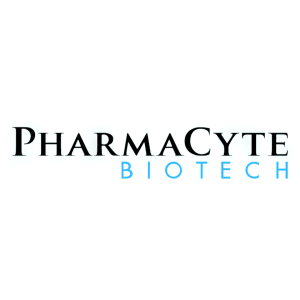PharmaCyte Biotech Appoints Dr. Matthias Löhr to Board of Directors
PharmaCyte’s Chief Executive Officer,
Commenting on his appointment, Dr. Löhr said, “It is with great pleasure that I join PharmaCyte's Board of Directors. With the company being on the precipice of an FDA clinical trial in locally advanced, inoperable pancreatic cancer, I can think of no better opportunity for me to be involved with PharmaCyte’s future successes. PharmaCyte's pipeline of developing treatments for cancer and diabetes directly addresses the hard-to-treat diseases that I have been so passionately involved in over my career. It is my belief that there is real hope on the horizon for those patients suffering from these tragic diseases, and I am honored to be a part of it all."
Dr. Matthias Löhr is Professor of Gastroenterology and Hepatology at the famed
Dr. Löhr is a licensed physician and board-certified internist and gastroenterologist. He has a subspeciality in GI Oncology. He is also a Fellow of the European
Dr. Löhr served as the Principal Investigator for the Phase 1/2 and Phase 2 clinical trials of PharmaCyte’s pancreatic cancer treatment that were completed in the early 2000s. Not only is he familiar with the Cell-in-a-Box® live-cell encapsulation technology that forms the core of PharmaCyte’s pancreatic cancer treatment, but he has also administered PharmaCyte’s treatment (the combination of Cell-in-a-Box® capsules with low doses of the anticancer drug ifosfamide) in clinical trials in patients with advanced, inoperable pancreatic cancer.
Dr. Löhr has also served as a consultant to PharmaCyte in connection with its development of treatments for pancreatic cancer and diabetes using the Cell-in-a-Box® technology. He has expertise in the treatment of both diseases, in addition to thoroughly understanding PharmaCyte’s technology and its use in a clinical setting.
In 2000, Dr. Löhr was appointed Professor of Molecular Gastroenterology at the
Dr. Löhr has authored more than 340 original peer-reviewed scientific papers and more than 50 reviews. He has published in all major journals, including Nature,
Dr. Löhr holds a BA in Anthropology & Theology from the
About
PharmaCyte’s therapy for cancer involves encapsulating genetically engineered human cells that convert an inactive chemotherapy drug into its active or “cancer-killing” form. For pancreatic cancer, these encapsulated cells are implanted in the blood supply to the patient’s tumor as close as possible to the site of the tumor. Once implanted, a chemotherapy drug that is normally activated in the liver (ifosfamide) is given intravenously at one-third the normal dose. The ifosfamide is carried by the circulatory system to where the encapsulated cells have been implanted. When the ifosfamide flows through pores in the capsules, the live cells inside function as a “bio-artificial liver” and activate the chemotherapy drug at the site of the cancer. This “targeted chemotherapy” has proven effective and safe to use in past clinical trials and we believe results in little to no treatment related side effects.
PharmaCyte’s therapy for Type 1 diabetes and insulin-dependent Type 2 diabetes involves encapsulating a human cell line that has been genetically engineered to produce and release insulin in response to the levels of blood sugar in the human body. The encapsulation of the cell line will be done using the Cell-in-a-Box® technology. Once the encapsulated cells are implanted in a diabetic patient, we anticipate that they will function as a “bio-artificial pancreas” for purposes of insulin production.
Safe Harbor
This press release may contain forward-looking statements within the meaning of the Private Securities Litigation Reform Act of 1995 that express the current beliefs and expectations of the management of PharmaCyte. Any statements contained herein that do not describe historical facts are forward-looking statements that are subject to risks and uncertainties that could cause actual results, performance, and achievements to differ materially from those discussed in such forward-looking statements. Factors that could affect our actual results include our ability to raise the necessary capital to fund our operations and to find partners to supplement our capabilities and resources, our ability to satisfactorily address the issues raised by the FDA in order to have the clinical hold on our IND removed, as well as such other factors that are included in the periodic reports on Form 10-K and Form 10-Q that we file with the
More information about
View source version on businesswire.com: https://www.businesswire.com/news/home/20220405005475/en/
Investor Relations:
Dr.
Telephone: 917.595.2856
Email: InvestorRelations@PharmaCyte.com
Source:







